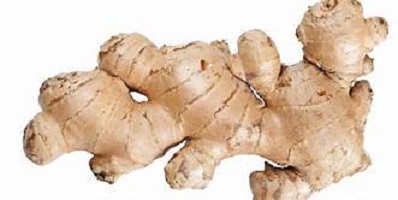Ginger Root Benefits –Traditional Herbal Remedy | Side Effects
Firstly, Ginger root is a plant with leafy stems and yellowish-green flowers. The ginger spice and added flavoring come from the roots of the plant.
People have used ginger root powder and extract in cooking and medicine since olden times. It is a common home remedy for stomach pain, nausea, and other health issues.

It’s also been a customary remedy in many cultures for ages.
As a recipe, fresh or dried ginger and garlic roots are used in cooking, and some take ginger root tea for their potential health benefits.
Moreover, many people drink ginger teas or ginger soft drinks (ginger ale). It is a common ingredient in chai tea or beer. You can also find ginger lollipops, gingerbread man, biscuits, candies, and capsules.
Ginger Root Many Names
African Ginger, Amomum Zingiber, Ardraka, Black Ginger, Cochin Ginger, Gan Jiang, Gingembre Noir, Gingembre, Gingembre Africain, Gingembre Cochin, Gingembre Indien, Gingembre Jamaïquain, Ginger Essential Oil, Ginger Root, Huile Essentielle de Gingembre, Imber, Indian Ginger, Jamaica Ginger, Jengibre, Jiang, Kankyo, Kanshokyo, Nagara, Race Ginger, Racine de Gingembre, Rhizoma Zingiberi, Rhizoma Zingiberis, Rhizoma Zingiberis Recens, Shen Jiang, Sheng Jiang, Shoga, Shokyo, Shunthi, Srungavera, Sunth, Sunthi, Vishvabheshaja, Zingiber Officinale, Zingiberis Rhizoma, Zingiberis Siccatum Rhizoma, Zinzeberis, Zinziber Officinale, Zinziber Officinalis.
Ginger Origin
Ginger has a deeply rooted history/native to warmer parts of Asia, such as China, Japan, India, and Arabic cultures for traditional digestive support but now is grown in parts of South American and Africa to use as medicine and with food.
If you love a hint of ginger in your meals, you’ll love it in your wellness routine too!
If you love a tip-off of ginger in your meals, you will love it in your health routine also!
What Does Ginger Root Do To The Body?
Ginger contains chemicals that can reduce nausea and inflammation. Researchers believe that chemicals work mainly in the stomach and intestines, but they can also work on the brain and nervous system to regulate nausea.
Uses of Ginger Root – How to do You Use Ginger?
- The root of the ginger plant has many uses, including as an ingredient in all the delicious and tasty food.
- Ginger is commonly used in many forms for nausea and vomiting.
- It is also used for menstrual cramps, diabetes, osteoarthritis, migraine headaches, and other conditions, however, there is no good scientific evidence to support much of this use.
- In food and drink, ginger is used as a flavoring agent.
In manufacturing, ginger is used for fragrance in soaps and cosmetics. - One of the chemicals in ginger is also used as a laxative, anti-gas, and antacid pills.
Ginger Root Nutrition – Functions of Ginger
Two tablespoons of ginger have 4 calories. The root does not offer many vitamins or minerals, but it is full of antioxidants that help protect your cells from damage and prevent infections.
Ginger Root Benefits
Ginger Root Side Effects
– What Are the Good Benefits Of Ginger?
- Ginger is packed with health benefits which include – a common remedy for stomach upset and irritation. There is evidence that it helps.
- Ginger seems to help with digestion and saliva flow. Studies have found that taking ginger can reduce nausea and vomiting in some pregnant women.
- But expectant mothers should be careful with ginger. Some experts worry that it could surge the risk of miscarriage, particularly in high doses.
- Ginger appears to help with nausea caused by vertigo too. There is mixed evidence as to whether nausea is caused by motion sickness, surgery, or chemotherapy.
- Ginger seems to help in times of pain. In another study, more than 60% of women felt that ginger reduced their pain during menstruation
- There is strong evidence that ginger can reduce the pain of osteoarthritis. It can also help with:
- Rheumatoid Arthritis
- Muscle and joint pain
- Headache
But more research is needed.
Laboratory studies with animals have found that ginger is possible, according to theories:
- Mild swelling
- Lower your blood sugar
- Low cholesterol
- Prevent Alzheimer’s disease
- Prevent blood clotting
Clinical evidence shows that ginger can help lower blood sugar and blood pressure.
Some people put on ginger compresses to the skin for pain but not sure whether it works or not
A good dosage of ginger is not yet set for any situation. The quality and effective ingredients in supplements can vary greatly from manufacturer to manufacturer. This makes it very difficult to set a standard dose. Ask your doctor for advice.
Ginger is commonly sold as an herbal supplement. There are no regulatory standards for many herbal combinations and some commercial supplements are contaminated with toxic metals or other drugs.
Ginger can as well be used for purposes not listed in this write-up.
Before using ginger, talk to your healthcare provider. You may not be able to use ginger if you have certain medical conditions.
Ask your doctor, pharmacist, or other health care provider if it is safe to use this product if you have:
- A bleeding or blood clotting disorder;
- Diabetes; or
- Any heart conditions.
Also, enquire from your doctor before using ginger if you are pregnant or breastfeeding.
Do not offer any herbal/health supplement to a child without medical advice.
How Should I Take Ginger Root?
- Do not use different forms of ginger (such as tablets, liquids, etc.) at the same time unless specifically instructed to do so by a health care professional.
- Call your doctor if your condition does not improve while taking ginger, or if it gets worse.
- Ginger can affect blood clotting and can increase the risk of bleeding.
What Should I Avoid While Taking Ginger?
Avoid using ginger and other health/herbal ingredients that can lower blood sugar, such as alpha-lipoic acid, chromium, satanic claw, fenugreek, garlic, guar gum, horse chestnut, Panax ginseng, psyllium, Siberian ginseng, and more.
Ginger Root Side Effects
Even though not all side effects are known, ginger is believed to be likely safe for most people.
Avoid usage and call your healthcare provider immediately if you have:
- Easy bruising or bleeding; or
- Any bleeding that will not stop.
Common Side Effects May Include:
- Firstly, heartburn, diarrhea, stomach upset;
- Secondly, difficult menstrual periods; and
- Skin irritation (when applied to the skin)
But, this is not a whole list of the side effects and some may occur. Call your doctor for medical guidance about side effects.
Summary
Ginger root is loaded with bioactive compounds that have to contain powerful effects on your body and mind.
It is one of the few superfoods that truly deserves that name.



Pingback: How to use Alligator Pepper Plant for Special Prayers - 9jafoods
Pingback: Cracked Heels Home Remedy - Causes, & Diet - 9jafoods